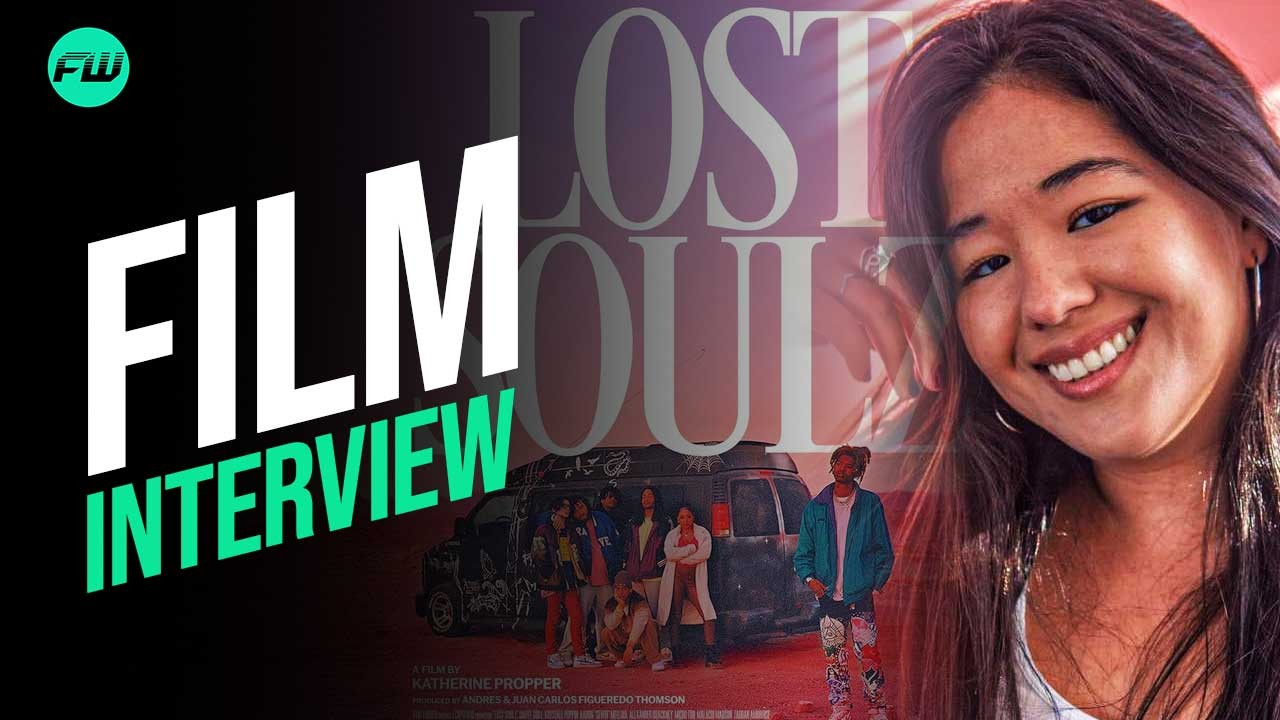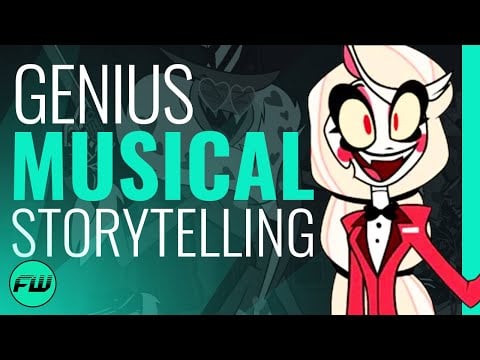After debuting at the 2023 Tribeca Film Festival to great acclaim, Katherine Propper’s feature debut, the road movie Lost Soulz, is making its way to theaters. The film follows a young rapper who joins a band of musicians traveling throughout Texas on a journey of self-discovery. It’s a moving film with an excellent soundtrack, and we at FandomWire got to speak with Propper about it. Check out the interview here!
Lost Soulz Interview
FandomWire: I think one of the most impressive things about Lost Soulz is the amount of talent you could discover in this cast of mostly newcomers. How did you come to find these talented musicians-turned-actors?
Katherine Propper: I agree that they are very talented and compelling. I met the lead actor who plays Sol, Suave Sidel, actually a month into moving to Austin, Texas, for my MFA film program at UT. I met Suave Sidel from a Craigslist post that I put up looking for actors for a school project, and Suave was the only one who responded. At the time, he was in high school and playing football at Westlake, which is a really cool Friday Night Lights Austin high school. Even then, he had rainbow hair and grills and was super compelling.
We were talking when we met, and he said that his dream was to one day be a rapper and actor, to go to LA. Already from that first meeting, I found him really charismatic, and I knew that I was interested in trying to work with him on a future film project. But at that time, I was literally only in Austin for one month, and I had barely picked up a camera before that.
A year later, for my second-year film at UT, I wrote a script for a short film with Suave in mind. That one was called Street Flame — it was a short film that premiered at Tribeca in 2019. It’s about itinerant kids in Austin who skate and do graffiti. It also is an ensemble cast with a group of mostly first-time actors, including Suave’s cousin, who acted in it.
From that short film, I knew that I was interested in working with Suave again. That’s where I learned that Suave was very good in front of the camera and could act and had something that I was excited about. He was also very in love with acting and said, “If you’re ever doing a sequel, or if you want to work again, I love acting; I love being in front of a camera.”
So, he ended up moving to LA and had success in the music business. He toured with the rapper Juice WRLD and was in the posse of the rapper Lil Mosey, and was doing cool things in the SoundCloud rap scene. I continued making short films in Austin, and I made another short film about young people called Birds, which did decently well on the festival circuit. In the back of my mind, I was like, “I’m gonna make a longer project one day with Suave.”
Come March 2020, when the world shut down, I was like, “I guess I have time now to write a feature.” I actually wrote a couple of features during the pandemic, but the first one I wrote was a vehicle for Suave, and I wrote it with Suave as the lead in mind. I made the character of Sol a musician, similar to how Suave is in real life.
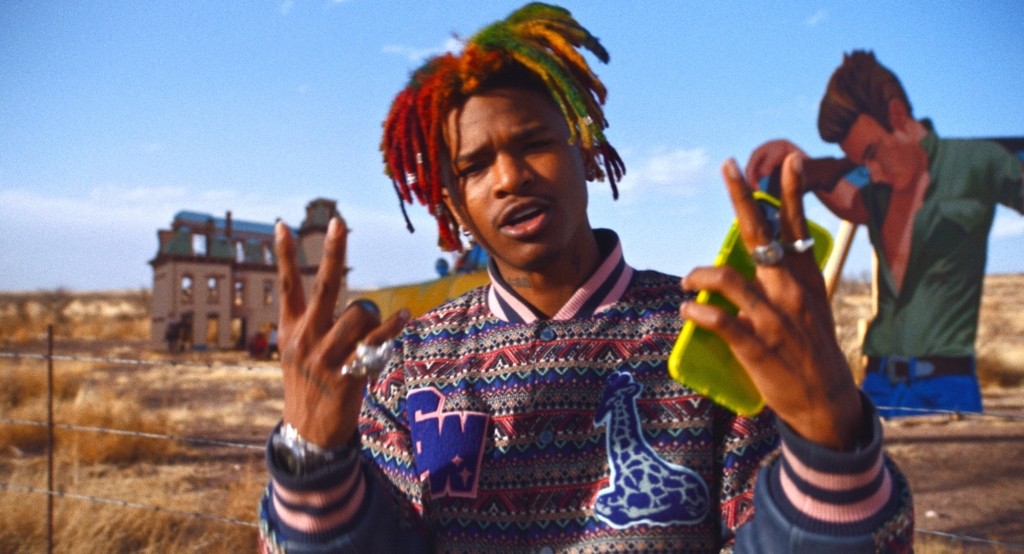
Also Read: The Greatest Hits SXSW Review: Music-Filled Romance is Undeniably Charming
FandomWire: There’s a lot to be said about independent artists in Lost Soulz. This is an independent film. The stars are independent musicians. Why do you think independent art is important?
Propper: When you’re starting out, you kind of have to be independent, especially if you’re a young person. I think in the last ten years — this is very true in video and in music — the technology has become so much easier and accessible for everyday people and young people to get their hands on. Filmmaking tools and devices, whether it’s like an iPhone or just cheaper cameras that have amazing 4K footage, like the Sony a7S or what have you.
And the same thing with music. The tools are such that you can be in your bedroom and make an album like Lorde did at age 16 and have it be a hit Billboard record. The last ten years have been transformative from a technology perspective.
I don’t know if you’ve ever felt this way, but you go to those Q&As with famous directors, and they’re like, “Just make a film on your iPhone. There’s no excuse.” I was the person going to those panels for the last ten years, hearing that over and over again, and then there was Tangerine, which actually was made on the iPhone, and Frances Ha, which was filmed on a Canon 70 and looks beautiful, and there was the mumblecore movement before that, which kind of made films on the on the cheap with less good cameras and DV.
I’m inspired by the fact that technology has made it possible to make something cheaply and have it look pretty high-quality, something previous generations didn’t have access to. But when you’re also in an oversaturated world, which is also the case because everybody can make content and post it on YouTube and social media, there’s also that fear that “Yeah, I could make something, but it may be no one will care. No one will notice, or how do I break through from the noise?”
There’s a desire to be independent and DIY and figure out creative ways to get spotlit. It’s definitely something that I would say is hard and challenging. And it’s a leap of faith because there’s always the possibility that it gets lost and lives on a hard drive.
I really appreciated that all of the cast were from the SoundCloud rap world because they’re all used to self-promoting and being on social media being content creators and figuring out creative ways to be public and find fans and listeners. I think that spirit of do-it-yourself independent — we’re gonna figure out a way to directly go to the fans ourselves without a label or big players — that was cool. I felt like they were all part of that mentality.
I think that was the energy on set, too. This wasn’t A24. This wasn’t really experienced producers or department heads or even the director. But we are all used to being young and navigating how to get our art out there in the world and trying to get noticed in a very oversaturated content world.
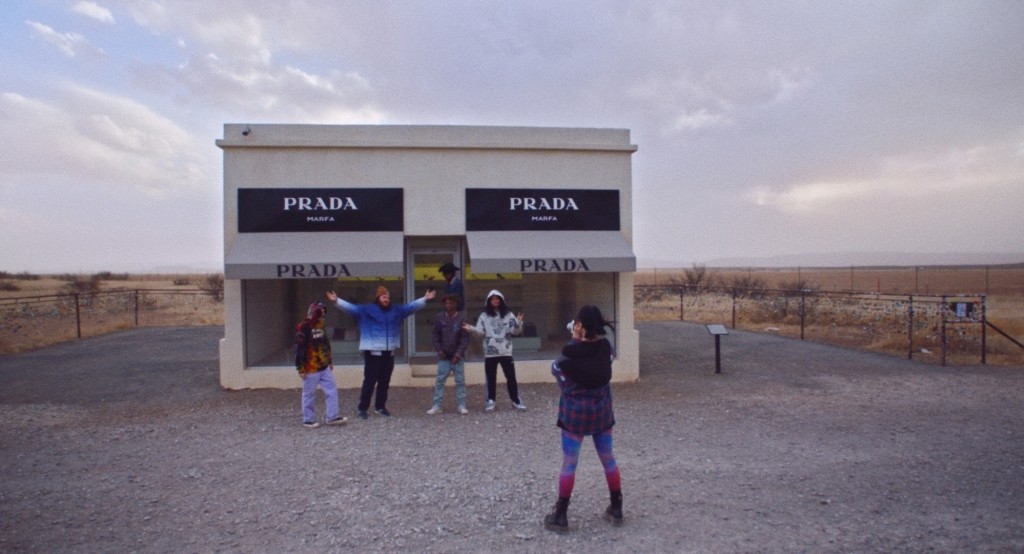
FandomWire: The road movie is a tried and true genre, but Lost Soulz is one of the first made from and for a Gen Z perspective. Why do you think this genre still resonates today?
Propper: I would say that part of the reason I made it a road movie is because, in making the movie, I wanted to go on an adventure myself. I think when you make a film, you’re committing to potentially two to three years of thinking about that project, doing the location scouting six months in advance and finding the locations and finding the places. I have a very exploratory heart, I guess, so part of writing this movie was also me being like, “Where do I want to go? Where do I want to spend time? Even an editor, when I’m sitting in a room staring at my computer screen, what do I want to be looking at?”
I want it to be as beautiful and dynamic and exciting as possible for myself just selfishly, but also for audiences, of course.
I’m also actively thinking about what we can do affordably and cheaply that is going to create cinematic production value and impact. So what came to mind were places like the Prada Marfa stop. Or when I was in El Paso, a random high school student who was a skateboarder recommended the skate spot, which is the place of the rainbow steps. Finding locations like that is part of the excitement for me of making movies. This is such a beautiful secret that no one knows about, and we get to film it, and then I get to live in that place for three months while I’m editing the movie, and then audiences get to live in it, too.
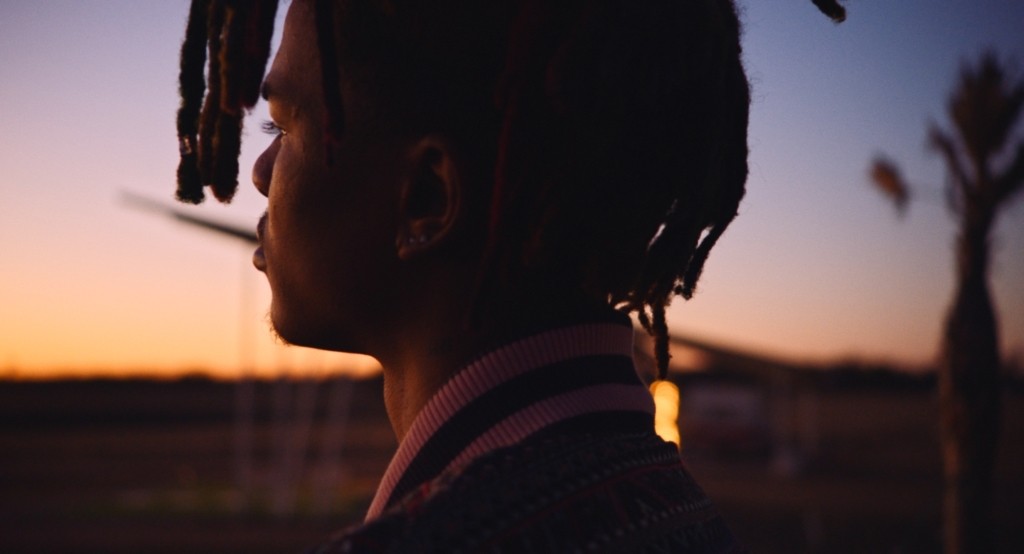
FandomWire: I really appreciated how you incorporated the music into the narrative and used it to tell the story — not as something that dragged the story to a halt. Why was that important to you?
Propper: The music is very important because part of making it a music-forward film was also because I thought that it would be commercial in a way that feels maybe more fast-paced and entertaining than sometimes independent films can feel.
One of my complaints, being very ADHD, is that a lot of independent films that are dramatic are very slow. I was like, “I don’t want to make an overly slow movie. I want to make a film that people who are used to scrolling on Instagram and TikTok could watch and not just be bored.” Younger generations, not all but many, find cinema slower, and they’re not going to theaters anymore. They’re not watching longer content. They’re watching TV shows that they can watch while being on their cell phone at the same time.
So, I think putting music in the film helps create an energy that sometimes forces you to pay attention. I think sometimes, even the stimulation of noise itself creates a mood and helps people focus. It helps me focus, at least, and it helps create an emotional feeling, too. I know sometimes people think it’s a cop-out in filmmaking to use a lot of music. But for me, no. That’s the heart of the movie because the characters are like they’re in a musical. They’re saying what they feel, and the emotions of the song are part of the story and the characters’ journey.
I also love hip-hop music and pop culture and was fascinated by the SoundCloud rap scene that had been going on. I love the documentary Everybody’s Everything about Lil Peep. I actually ended up meeting with that director because he was living in Austin for a while and we both did time working for Terry Malick as editors.
So I wrote Lost Soulz, and the themes that were personal to me were a character who feels like they’re on their own in the world and doesn’t have a conventional support system, who comes from a family that’s broken or just doesn’t exist and doesn’t really have a home base and is navigating having a pipe dream that feels really far away; and has to kind of rely on found family and friendships and community to just exist in the world and not be totally on his own. I guess that’s the part that felt personal to me.
We did a band camp in New York City a few months before production, where we wrote the original music for the film. I say “we,” but it wasn’t really me. It was a collaborative effort by a group of songwriters and composers and beatmakers and producers and sound engineers and, honestly, most of them are very much multi-hyphenates. Some of them are performers themselves or instrumentalists or whatever. But some of the cast were there — like Micro, Alex Brackney, Malachi — there were people at the band camp who were physically part of the cast.
Then there were producers and instrumentalists and lyricists that were also in the room, and it was similar to the scene in the movie where they were in the studio, riffing off each other and improvising the song. That’s how the music was made. Somebody would be like, “Hey, what do you think of this chord or this beat?” Everybody’s kind of jamming and on their iPhones writing different verses, and then someone would be like, “What if it’s this?” or “What if this is the chorus?” It was very inspiring to be in that room.
And separately, because all of the actors are very talented songwriters themselves, after we finished the music, some of the actors rewrote their own verses to make them more personal. So, the music took on many different iterations.
There were, like I said, very talented songwriters and composers involved, some of whom aren’t in the film but are credited at the end. That includes Zig and Baceface, Ellex, and Angelo Diaz. There are so many talented people, and I bring up their talent because they made the music with a lot of love and heart. It wasn’t just like a job for them; this is what they love to do, and it was their dream to get to do this every day. I feel like you hopefully feel that in the music.
FandomWire: I just want to end by asking… is the soundtrack going to be released?
Propper: Yes, we have a soundtrack coming out with Sony, their Milan Records arm that does soundtracks. Unfortunately, we weren’t able to get the music mastered for this weekend, but it should come out either next weekend or for sure by May 17. The soundtrack is coming out and it’s on the way, and we’re also dropping some music videos for a couple of the singles.
Lost Soulz is now in theaters.
Follow us for more entertainment coverage on Facebook, Twitter, Instagram, and YouTube.

